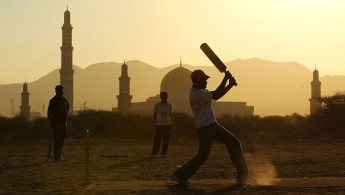Oman begins to evict single men from residential areas
Single men living in parts of Oman's capital have been told to leave their homes, as Muscat's council clamps down on bachelors in residential areas.
Notices have been issued to buildings occupied by single expatriate men this week giving residents three days register with the council or move out of their homes.
Local councils have been told to act on a law that prohibits landlords from renting out rooms and homes to unmarried residents, unless they have prior permission from the municipality.
Article 31 of Local Order No. 23/92 bans single men from residing in residential areas.
"Muscat's municipality is in the process of implementing a judicial ruling against the home owners that house single residents in residential neighbourhoods, without prior permission of the municipality," a statement from the council read.
Council workers and police raided a number of homes in the suburb of Mawaleh in January, while other neighbourhoods dominated by Omani families have also been targeted.
Single men are expected to move into "segregated living quarters" in the capital, according to Muscat Daily.
Other local media reported that the new law applies to men and women of all nationalities, but is most likely to affect male foreign workers.
Salim Mohammed Hamed al Ghammari told Muscat Daily that the council will take action against any landlords who don't evict single men living in their properties.
"We have mooted the idea of creating special complexes for expatriate workers in Amerat, Seeb, Quriyat and other areas. Another suggestion is to allocate specific streets in different areas for them."
Neighbouring countries have so-called "workers camps" where labourers - usually from South Asia - are usually based, situated far from residential or commercial areas and with few amenities.
These areas are often not connected by public transport to city centres, further isolating the workers.
A number of Gulf countries have introduced new laws targeting expatriates. Kuwait has banned Bangladeshi workers to reconfigure demographics in the country.





 Follow the Middle East's top stories in English at The New Arab on Google News
Follow the Middle East's top stories in English at The New Arab on Google News

![Israeli forces ordered bombed Gaza's Jabalia, ordering residents to leave [Getty]](/sites/default/files/styles/image_330x185/public/2176418030.jpeg?h=a5f2f23a&itok=_YGZaP1z)
